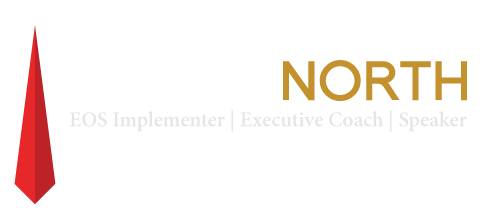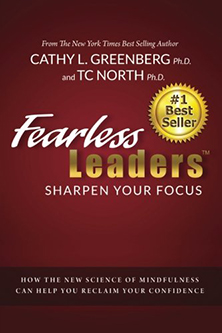What is self-confidence and how is it different from arrogance?
This is the first video in the how to build confidence video series. Self-confidence is an important part of developing stronger personal power and having more Mindful Powerful™ to lead yourself and others.
My research results and individual coaching with entrepreneurs, chief level officers, and professional and Olympic athletes suggests essentially everyone wants more self-confidence, at least in the most challenging, high-pressure situations.
It surprises most people to learn that they can consciously strengthen confidence much like they would a muscle. In this video series, you’ll learn techniques to build your confidence with both your mind and body and discover the neuroscience that explains why each method is effective.
Either watch the video or read the transcript below to learn the definition of confidence, the two kinds of confidence, how arrogance differs from confidence, and how to create more of the emotional feeling of confidence using the only two things you have 100% direct control of.
For the best confidence-building technique I know, click here.
[vc_video link=”https://youtu.be/Ekvh_MgHwD0″]
Kim: Hi, I’m Kim Tracy with the Maxwell James Speaker Agency. So excited to be here with Dr. TC North. Thank you so much for joining me.
TC: You’re welcome Kim. I’m real excited to continue the big picture work on mindful power, but we’re going do a series together now on developing self-confidence, both general and task specific.
Kim: So talk to me. What is an element of building confidence?
TC: There are a lot of pieces. We’re going to talk about how to do it with your mind. We’re going to talk about how to do it with your body. We’re going to talk about the different benefits of confidence. There are more benefits to having confidence than people recognize.
We’re going to give techniques on how to develop either general confidence – what we call self-efficacy, which is that really deep level of confidence that’s in every cell of your body – and we’re also going to talk about how to develop very specific confidence. Specific confidence for something that you’re doing that you want to be confident in like giving a presentation, or leading a meeting, or going through a crisis or dealing with a conflict. How do you develop confidence when it’s most important to you?
Kim: So, walk me through this. How does one gain confidence by using your mind and body?
TC: Good. And I want to address that question, but first I want to give just a little bit of background because people don’t often don’t recognize that essentially everyone wants more confidence. They think, “I’m the only one that has these doubts. I’m the only one that feels insecure and gets fearful sometimes”. Kim, my practice is 30 years old and during that 30 years I’ve worked with tons and tons of entrepreneurs in very intimate settings and literally 100% of them have told me that they want more courage or confidence at least sometimes.
The world class athletes I’ve worked with, the pro athletes, the Olympic athletes they have also admitted in private that they want more confidence at least in their most pressured situations. They want control of their confidence level.
That’s probably the key there – they want to be confident when they need it the most during the big competitions. And then the other group we surveyed was last summer. We surveyed 287 chief level officers in the nutraceutical industry. They were either business owners or on the chief level of the leadership team of the business and 96% of them said they wanted more courage or confidence in their most stressful situations.
Kim: Wouldn’t we all? So what is the definition of self-confidence?
TC: It’s a combination of things. Most people think confidence is a feeling, but the emotional feeling is really the result. Confidence comes from your beliefs about yourself and your thoughts and actions that create it. Confidence originates in your subconscious mind, Kim and it’s carried throughout your whole lifetime, building or subtracting as you go. It’s really a faith in your own abilities and having a level of self trust to do what it is that you want to do.
Kim: Ok. What are the thoughts and feelings that one needs to be aware of?
TC: Thank you. Being aware of what’s going through our head, our self talk. We’ve got a great program coming next where we talk about the one word that changes everything about your confidence. It’s going to be fun to do that one.
We all understand how to build a muscle. You stimulate and work a muscle – you go to the gym, you do a bunch of work with your bicep -and then the bicep muscle fibers will split, they’ll get larger, they’ll get thicker and essentially multiply. Confidence is like that in your brain.
The brain has neural networks and the neural networks act just like muscle fibers. When you stimulate that neural network (and you stimulate a confidence neural network by thinking a confident thought or having a confident memory) literally the neurons in the neural network get bigger, they get thicker and they make more connections with the dendrites. It’s just like training your body, you want certain muscles bigger than other muscles and you want to develop your confident neural network to be stronger and more dominant than your fearful network.
Kim: That’s really neat. You know, so many people mistake self-confidence for arrogance. What is self-confidence -I guess – not? Horrible grammar! My English teacher is like “what did you just say?”.
TC: You can do Yoda speak {chuckles}. Self-confidence is not arrogance. I can’t tell you how many people are worried about that when we talk about building their confidence. They say, “I don’t want to be arrogant and I don’t want to be perceived as arrogant”. My response is always “Great! I want you to be self-confident. I don’t want you to be arrogant”.
Arrogance is a rather offensive display of people who are trying to send the perception that they’re superior to you or others. It’s really a reflection that they’re insecure. So, arrogance is not a reflection of high confidence, it’s actually reflection of low confidence. It’s like the puffer fish. A puffer fish gets bigger in order to look scarier. And that’s kind of what arrogance is. I’ll be bigger and scarier and people will think I’m really confident.
Kim: So I’m hearing that there are different things. So talk to me about different kinds of confidence because aren’t there different levels?
TC: Yeah and I mentioned earlier general confidence, or self-efficacy (that’s the scientific term) and that deep level of confidence is the baseline of everything. The stronger your general confidence or your self-efficacy is, the easier it is to build specific confidence for doing things you want to do. Question for you Kim – ‘Are there tasks or certain things in your life that you have a lot confidence at and things that you don’t have a lot of confidence at?’
Kim: Absolutely.
TC: Like?
Kim: High confidence would probably be doing what you do best, or knowing that you have proven success. And then lower confidence may be, “oh my gosh I have to try something. Maybe I’m going to get rejected. I don’t know what’s going to happen”. So I think it’s that natural level.
TC: Yeah and that’s very typical of all of us. The things we’re confident at we have confidence in, and the things that are new we generally don’t have much confidence. So again if you have that general high level of self-efficacy at least you start with a higher baseline rather than starting out with just pure fear of something new. Does that make sense?
Kim: It does, it does. So then how do you build your confidence?
TC: We’re going to go through lots of different techniques. For today I’d like to keep this pretty general, if I may. The next video we’re going to talk about very specific ways to use your self-talk and everything we’re going to talk about is going to be backed by some good neuro-psych research.
Kim: Excellent. So talk to me about the benefits of general self-confidence.
TC: General self-confidence is how you show up every moment. People read it. People read us in the first seven seconds of being introduced to us whether it’s through a video like this, or whether it’s on stage, or in person. We make an impression and it’s just that energy that we exude. Having that general self-confidence is always there and it’s always the baseline to build new task specific confidence on.
Kim: I’m so excited that we’re doing this because building confidence, let’s say with different people you teach different techniques, right?
TC: Yes. And we’re going to be focused on the adult population. So for example with me – I’m really comfortable going on stage and I can talk to hundreds of people in an audience as long as they’re adults. You put me in a room full of three year olds and I’m clueless.
Kim: But you’re a father!
TC: She’s 22!
Kim: He’s wiped his brain clear of all the memories guys.
TC: I can deal with one 3 year old. Re-direct. Never say no, just re-direct.
Kim: Ha! Ok, so in our next video give them an idea of what we’re going to be talking about.
TC: In the next video we’re going to talk about how to change one word. Great neuro-psych research on changing one word and how it changes which part of your brain you use and why that’s important. You’re going from your fearful part to the thought part or the pre-frontal cortex. When you do that you literally are talking yourself from a place of logic versus just a place of fear and when you’re under stress that’s exactly what you want to do. So it’s a very powerful change, with great MRI studies to back it up.
Kim: Perfect. So I know you like to leave viewers with the tip of the day. What is today’s tip?
TC: I do. So a question for you, and I know you’ve heard this from our previous work so we’ll see if you can remember. What are the only two things you have 100% direct control over?
Kim: Your thoughts and your actions.
TC: Yeah Kim! Gold star! You got it. So the tip is since those are the only two things we have 100% direct control of put all of your energy into – Am I thinking the right thoughts that are creating the world I want to be in, the life I want to live? And the same thing with actions – are my actions consistent with creating the life I want?
Kim: Perfect. We are going to merge into video number two you guys so if you would love to bring Dr. TC North in for one of his amazing keynotes or workshops please contact me through MaxwellJames.net. Thank you so much.
My speaker agent Kim Tracy at the Maxwell James Agency produced this video. Please contact her if you’re interested in having me deliver a keynote, workshop or webinar on mastering fear. Or contact me if you’d like to discuss personal work with me to build your courage, confidence or presence.


